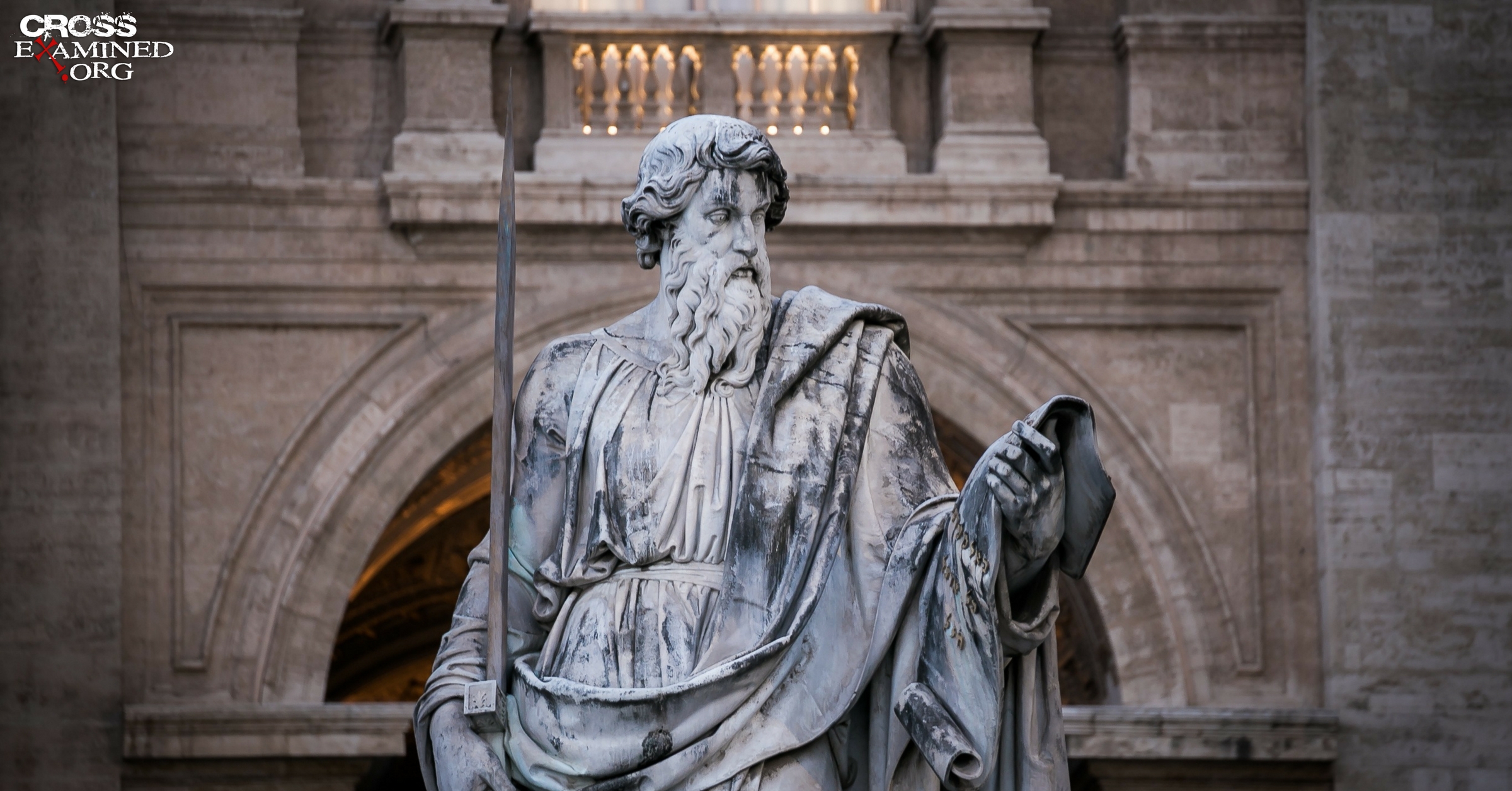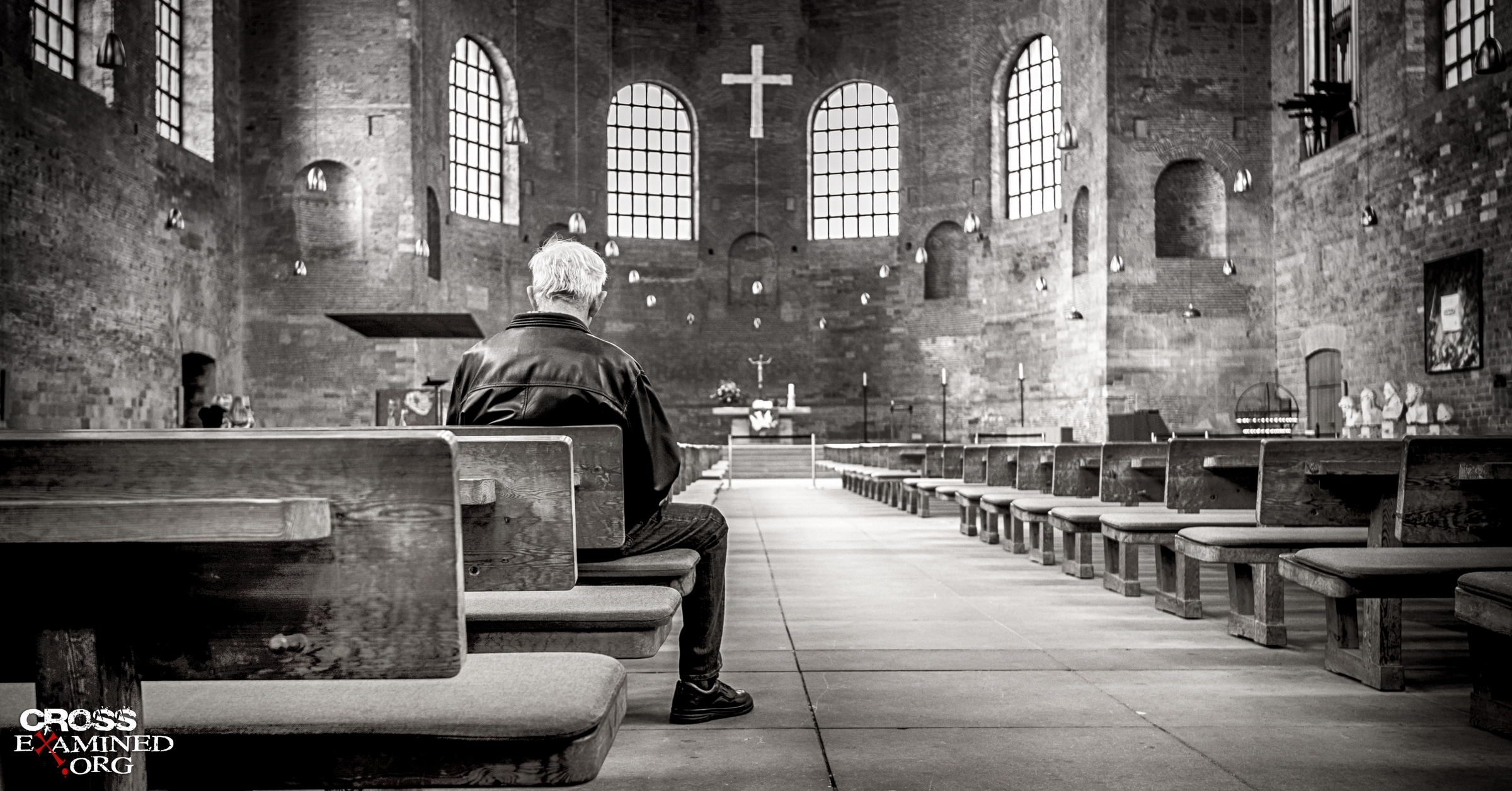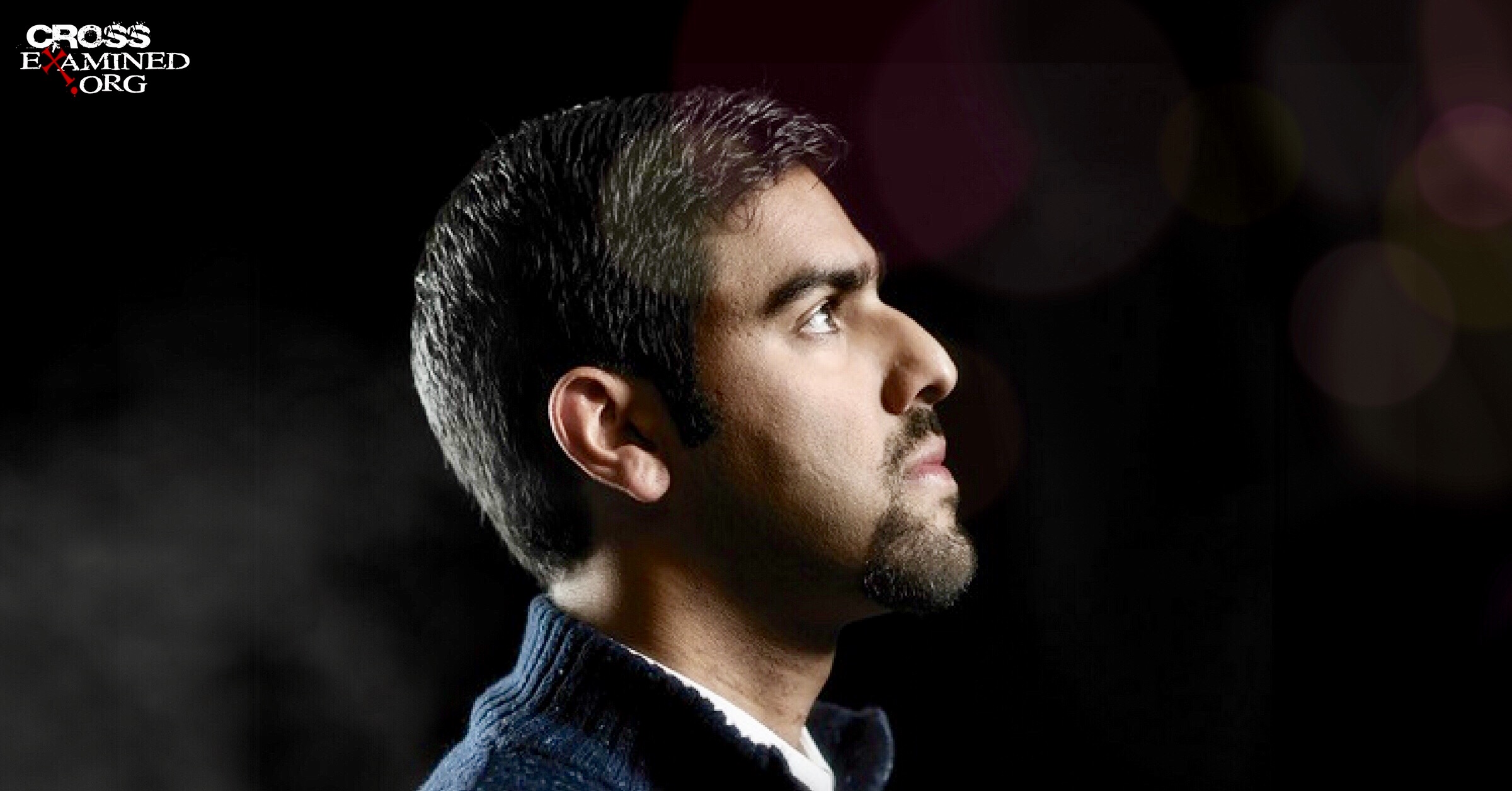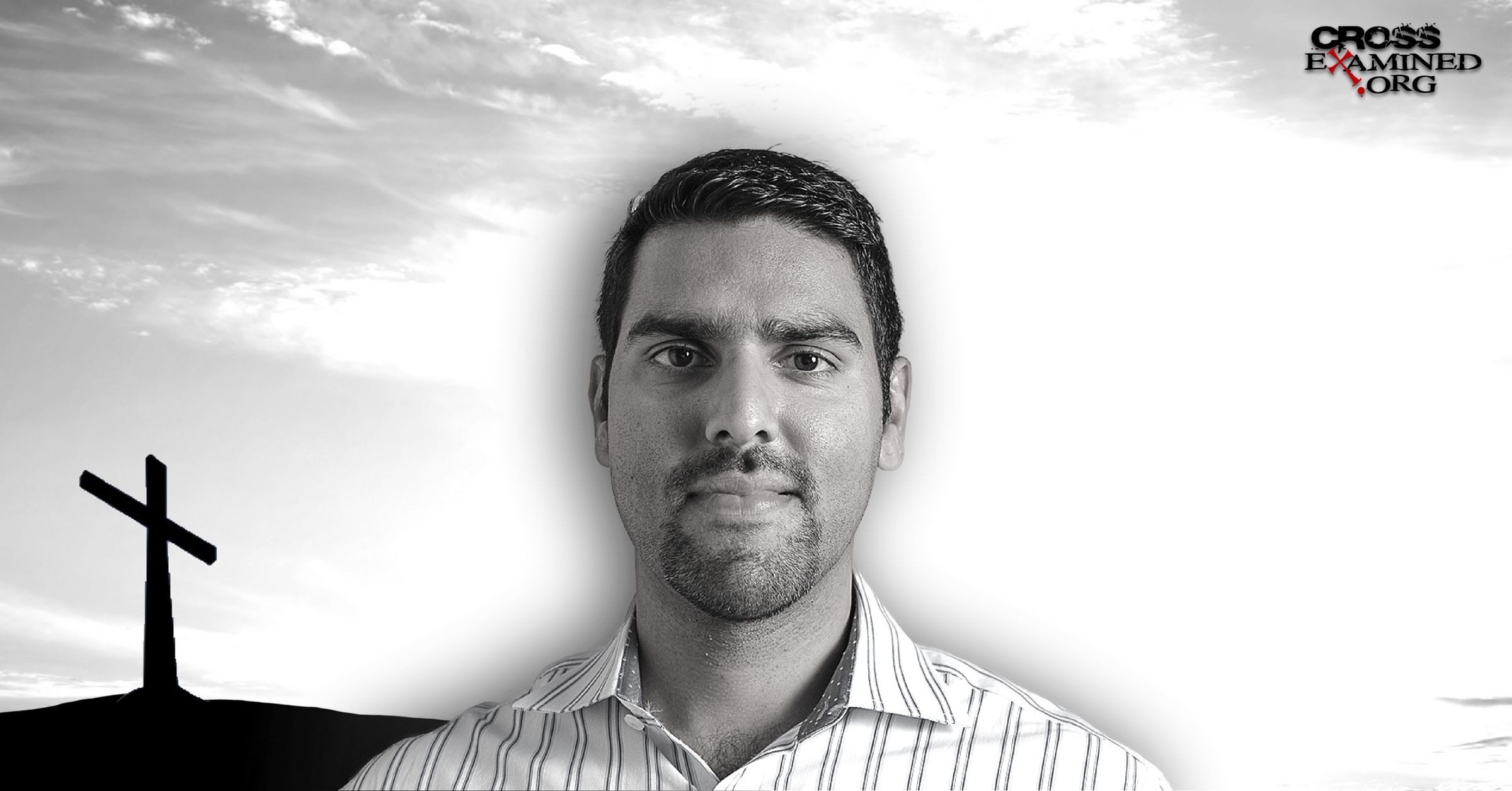En un artículo anterior, ofrecí una simple razón por la cual el Corán no puede ser la palabra de Dios, ya que la proposición de que el Corán es la palabra de Dios implica una necesaria contradicción. Aquí, voy a presentar una razón igualmente convincente para rechazar el Corán como la palabra de Dios.

Como he aludido en mi post anterior, el Corán sostiene que los discípulos de Jesús eran musulmanes. Según la Sura 3:52,
“…cuando Isa [Jesús] sintió incredulidad en ellos, dijo: “Quiénes son mis ayudantes en el camino de Allah?” Los discípulos dijeron: “Nosotros somos ayudantes de Allah. Creemos en Alá; así que sea nuestro testigo de que somos musulmanes.”
De acuerdo con el Corán, no hay duda de que los apóstoles eran musulmanes, bajo Jesús. Pero, qué pasaría si pudiéramos establecer que la enseñanza de los apóstoles difiere radicalmente de las enseñanzas de Mahoma y el Corán? Aquí hay un argumento para reflexionar:
Premisa 1: Si los discípulos originales de Jesús rechazaron las principales enseñanzas islámicas, el Islam es falso.
Premisa 2: Los discípulos originales de Jesús rechazaron las principales enseñanzas islámicas.
Conclusión: Por lo tanto, el Islam es falso.
Para que un musulmán escape de la conclusión, él o ella tiene que rechazar una de estas dos premisas. ¿Qué posibles rutas de escape podrían estar disponibles? Una ruta de escape podría ser decir que los discípulos de Jesús fueron engañados o [que estaban] de alguna manera equivocados —o tal vez corrompieron el verdadero mensaje de Jesús en algún momento después de esto. O tal vez incluso los 12 discípulos de Jesús ni siquiera están en mente aquí. Esta ruta de escape, sin embargo, es bloqueada por la Sura 61:14,
Oh, vosotros que creéis, sois partidarios de (la religión de) Alá, así como Isa, hijo de María, dijo a los Discípulos: “¿Quiénes son mis partidarios de Allah?” Los Discípulos dijeron: “Somos partidarios de (la religión de) Allah”. Así creyó un grupo de los hijos de Isra’il, y otro grupo no creyó. Entonces apoyamos a los que creyeron en contra de su enemigo, y se convirtieron en vencedores.
Por lo tanto, tal especulación se ejecuta en el siguiente problema: los apóstoles de Jesús fueron los vencedores que subieron al dominio debido al apoyo de Alá para ellos, indicando que su mensaje fue aprobado por Alá. Esto queda claro también cuando leemos en la Sura 3:55:
Cuando Allah dijo: “Oh Isa, yo te tomaré en tu totalidad y te elevaré hacia Mí, y para limpiarte de los incrédulos, y para colocar a los que te siguen por encima de los que no creen hasta el Día de la Resurrección.
En forma silogística, el argumento puede resumirse de la siguiente manera:
Premisa 1: Hubo vencedores que subieron al dominio quienes Alá apoyó (Sura 3:55, Sura 61:14).
Premisa 2: O los vencedores fueron los apóstoles de Jesús o no fueron los apóstoles de Jesús.
Premisa 3: Si no fueron los apóstoles de Jesús, entonces veríamos los registros de estos vencedores no apóstoles.
Premisa 4: No vemos tales registros.
Premisa 5: Por lo tanto, es falso que los vencedores no fueron apóstoles.
Conclusión: Por lo tanto, los vencedores fueron los apóstoles de Jesús.
Por lo tanto, cuando leemos la Sura 3:52, podemos estar seguros de que se está refiriendo a los discípulos. Allah bendijo a estas personas. Fueron los apóstoles los que Alá trajo al dominio y vindicó.
Pero ahora un musulmán podría preguntar: “¿Cómo sabes que los apóstoles rechazaron las enseñanzas islámicas básicas?”
Es a esta pregunta que ahora vuelvo mi atención.
Considere a Pablo, el apóstol.
Ahora bien, entiendo que el apóstol Pablo no fue uno de los discípulos originales de Jesús, sino que se convirtió al cristianismo siguiendo una visión de Jesús en el camino a Damasco en Hechos 9. Pero voy a argumentar que Pablo fue aprobado por los discípulos originales de Jesús. Esto sugiere fuertemente que su visión acerca de la naturaleza de Dios e identidad y misión de Cristo coincidió con la de los discípulos. En cualquier caso, aun en ausencia de la evidencia que estoy a punto de presentar, si tomamos en serio la Sura 3:55 y la Sura 61:14, entonces la enseñanza de Pablo debe haber sido consistente con los discípulos, porque el cristianismo que prevalecía es lo que los musulmanes polemistas consideran que es el cristianismo paulino —y el Corán nos dice que los verdaderos seguidores de Jesús fueron los que lograron el dominio y se convirtieron en los vencedores.
¿Estoy presentando una idea absurda con esta disputa? No; de hecho, estoy en buena compañía. Considere las siguientes citas de respetados comentaristas coránicos:
El renombrado comentarista del siglo XIII, Al-Qurtubi, dice de Sura 61:14:
“Se dijo que este versículo fue revelado acerca de los apóstoles de Jesús, que la paz y la bendición sean con él. Ibn Ishaq declaró que de los apóstoles y discípulos que Jesús envió (para predicar) se encontraban Pedro y Pablo que fueron a Roma; Andrés y Mateo que fueron a la tierra de los caníbales; Tomás que fue a Babel en las tierras orientales; Felipe que fue a África; Juan fue a Dacsos, que es la tribu a la que pertenecían los durmientes de la cueva; Jacobo fue a Jerusalén; Bartolomé fue a las tierras de Arabia, específicamente Al-Hijaz; Simón que fue a los bárbaros; Judas y Barthas que fueron a Alejandría y sus regiones circundantes”.
Allah los apoyó (a los apóstoles) con evidencia para que prevalecieran (thahirin) lo que significa que se convirtieron en el grupo al mando. Tal como se dice, “Un objeto apareció en la pared” lo que significa que es claramente visible (alu-wat) en la pared. Alá, que es glorificado y exaltado, conoce mejor la verdad y para Él es el regreso y la retirada.
El Sirat Rasul Allah de Ibn Ishaq (traducción al español, página 653), la biografía más antigua de Muhammad, dice lo siguiente:
“Aquellos a quienes Jesús hijo de María envió, los discípulos y los que vinieron después de ellos, en la tierra fueron: Pedro el discípulo y Pablo con él, (Pablo pertenecía a los seguidores y no era un discípulo) a Roma. Andrés y Mateo a la tierra de los caníbales; Tomás a la tierra de Babel, que está en la tierra del oriente; Felipe a Cartago y África; Juan a Éfeso, la ciudad de los jóvenes de la cueva; Santiago a Jerusalén, que es Aelia la ciudad del santuario; Bartolomé a Arabia, que es la tierra de Hijaz; Simón a la tierra de los bereberes; Judá, que no era uno de los discípulos, fue puesto en lugar de Judas”.
O considere la Historia de Al Tabari (Volumen IV, página 123):
“Entre los apóstoles, y los seguidores que vinieron después de ellos, fueron el apóstol Pedro y Pablo que era un seguidor y no un apóstol; fueron a Roma. Andrés y Mateo fueron enviados al país cuyo pueblo es caníbal, una tierra de negros, pensamos; Tomás fue enviado a Babilonia en el este, Felipe a Qayrawan (y) Cartago, es decir, África del Norte. Juan fue a Éfeso, la ciudad de los jóvenes de la cueva, y Santiago a Jerusalén, es decir Aelia. Bartolomé fue enviado a Arabia, a saber, el Hijaz; Simeón a la tierra de los bereberes en África. Judas no era entonces un apóstol, así que su lugar fue tomado por Ariobo. Él ocupó el lugar de Judas Iscariote después de que este último había perpetrado su hecho”.
Así, Al-Qurturbi, Al Tabari e Ibn Ishaq todos son llevados a alabar al apóstol Pablo como una consecuencia directa de estos versículos.
Hay varias razones historiográficas independientes para pensar que la enseñanza de Pablo fue aprobada por los discípulos originales de Jesús. Entre ellos se encuentran los siguientes:
Razón 1: Los individuos en la iglesia primitiva, quienes son comúnmente asociados con los apóstoles (Policarpo, Clemente e Ignacio) hablan aprobando sus cartas.
Razón 2: La iglesia primitiva nunca muestra el conocimiento de una disensión fundamental entre Pablo y Pedro sobre asuntos pertinentes a la cristología y la naturaleza de Dios, a pesar de que a menudo lo mencionan junto al apóstol Pedro.
Razón 3: Pablo nos dice en Gálatas 2 que subió a Jerusalén con Bernabé para confirmar que el evangelio que estaba predicando a los gentiles era el mismo que el suyo. Es improbable que haya inventado esta historia para apoyar su propia autoridad apostólica, porque en el mismo capítulo también menciona la disputa que ocurrió entre Pablo y Pedro en cuanto a la circuncisión cuando Pedro vino a Antioquía.
Razón 4: Pablo hace un comentario desinteresado sobre el Apóstol Santiago en Gálatas 1: 18-19:
Después de tres años subí a Jerusalén para visitar a Cefas y permanecí con él quince días, pero no vi a ninguno de los otros apóstoles, excepto a Santiago, hermano del Señor.
Mire el comentario desinteresado de Pablo sobre Santiago. Si Pablo era un verdadero Apóstol inventando historias, no esperaríamos que él mencionara a Santiagp de pasada sin hacer un punto. El hecho de que Pablo simplemente menciona a Santiago en esta manera de hablar, persuade a los historiadores de que Pablo estaba recordando los hechos reales acerca de su asociación con la iglesia primitiva y los Apóstoles.
Razón 5: Pablo escribe en 1 Corintios 15: 9-11,
“Porque yo soy el menor de los apóstoles, indigno de ser llamado apóstol, porque perseguí a la iglesia de Dios, pero por la gracia de Dios soy lo que soy, y su gracia para mí no fue en vano. He trabajado más duro que cualquiera de ellos, aunque no fue por mí, sino por la gracia de Dios que está conmigo. Y si yo o ellos, así predicamos y creíamos”.
Así Pablo parece endosar a los otros apóstoles e incluso llega a decir que se considera menos que el más pequeño de ellos. Pablo parece asumir que los cristianos corintios también creyeron que su mensaje era consistente con los otros apóstoles. Esto sugiere fuertemente que Pablo y los otros apóstoles generalmente acordaron los temas centrales de la fe.
La teología de Pablo estaba radicalmente en desacuerdo con la enseñanza central islámica, ya que Pablo afirmó no sólo la deidad de Cristo, sino también la crucifixión y la resurrección (todas ellas expresamente rechazadas por el Islam).
Para los propósitos de la discusión, apelaré solamente a las obras incontestadas de Pablo, las obras que todos los historiadores cristianos y no cristianos conceden por unanimidad fueron escritas por él.
En Filipenses 2: 5-11, Pablo cita lo que es probablemente un himno cristiano temprano:
“Haya, pues, en vosotros este sentir que hubo también en Cristo Jesús, el cual, siendo en forma de Dios, no estimó el ser igual a Dios como cosa a que aferrarse, sino que se despojó a sí mismo, tomando forma de siervo, hecho semejante a los hombres; y estando en la condición de hombre, se humilló a sí mismo, haciéndose obediente hasta la muerte, y muerte de cruz. Por lo cual Dios también le exaltó hasta lo sumo, y le dio un nombre que es sobre todo nombre, para que en el nombre de Jesús se doble toda rodilla de los que están en los cielos, y en la tierra, y debajo de la tierra; y toda lengua confiese que Jesucristo es el Señor, para gloria de Dios Padre”.
La crucifixión de Jesús ya está en desacuerdo con la teología islámica (ver Sura 4: 157-158). Además, existen al menos tres razones por las que este texto enseña la deidad de Cristo:
Razón 1: Se dice que Cristo estaba “en la forma de Dios” y luego “tomó la forma de un siervo” —él está poniendo a los dos en la misma categoría, ya que utiliza la palabra griega morphé (que significa “forma”), En ambas cláusulas.
Razón 2: El contexto del pasaje nos instruye a emular la humildad de Cristo. Pero no es un acto de humildad por parte de una criatura el no buscar ser como Dios.
Razón 3: Los versículos 10 y 11 se enlazan con Isaías 45:23: “Ante mí [es decir, Yahweh] toda rodilla se doblará, toda lengua jurará lealtad.”
Para dar otro ejemplo, Pablo parece expandirse sobre el shema (de Deuteronomio 6: 4) en 1 Corintios 8: 6, identificando a Jesucristo como el Señor del shema:
Pero para nosotros hay un solo Dios, el Padre, de quien son todas las cosas y por quien nosotros somos, y un solo Señor, Jesucristo, por medio del cual son todas las cosas y por el cual somos.
Esto sugiere, por extensión, que los discípulos de Jesús también afirmaron la deidad de Cristo. También parece improbable que hubieran llegado a una conclusión tan radical si Jesús mismo no se hubiera identificado de esta manera, especialmente dadas (1) las expectativas mesiánicas judías; (2) el concepto judío de Dios; y (3) las connotaciones de crucifixión a un judío.
Para concluir, no hay razón para pensar que los discípulos de Jesús eran musulmanes como el Corán sostiene y en cambio tenemos todas las razones para pensar lo contrario. Esto presenta otro desafío formidable a la religión islámica y da una orden aún más racional para su rechazo.
Traducido por Jairo Izquierdo.













